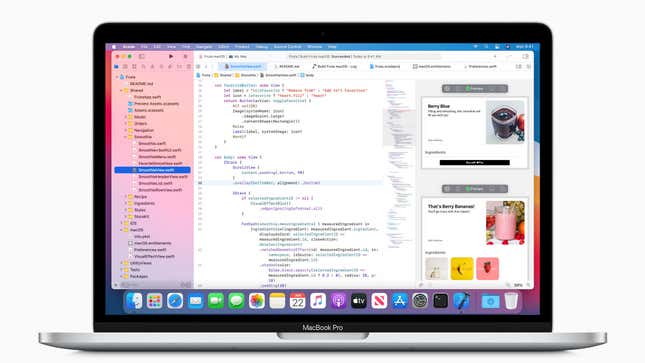
Well, now!
After a week of public feuding with an app developer and a resounding chorus of critics calling Apple out for its monopolistic App Store behavior, it seems the company is finally making some concessions for the broader developer community—namely by giving them a modicum of control over their own apps and review processes.
Tucked into a lengthy press release about developer announcements that following the company’s big WWDC event this week, Apple said it is overhauling the maligned App Store review process by allowing developers to appeal decisions about violations to Apple’s dodgy App Store rules—which sometimes apply to some apps and not others, including Apple’s own—as well as challenge any particular policy cited for a rejection. But more importantly, Apple says that updates for apps already in its store will no longer be held up by Apple’s arcane rules except in an instance where the update presents a legal issue.
The changes follow a weeklong tiff between Apple and the developers behind the new email management app Hey, which caused a stir shortly after its launch over the lack of an in-app subscription option. The service technically costs $100 per year, but by refusing to enable users to sign up through the iOS app, Hey was able to work around Apple’s remarkably steep App Store tax that can see the company take as much as a 30 percent cut.
When the app attempted to roll out an update with bug fixes shortly after its launch, Apple blocked Hey’s way and demanded the company either change its subscription format or risk being pulled from the App Store altogether. Hey’s founders made a very big, very public deal about this issue and drummed up a fair amount of attention just days before Apple’s annual developer conference. The Hey team and Apple were able to reach a truce this week—which, not going to lie, read at first as Apple trying to make the issue go away—but Apple’s announcement of a more diplomatic review process is a good sign that it not only heard complaints but listened.
To be clear, Apple is not handing over the reins completely here, and giving developers the ability to challenge their review process doesn’t necessarily mean Apple is going to roll right over to whatever demands are being made. But it’s a start—and one that’s been long overdue, at that.